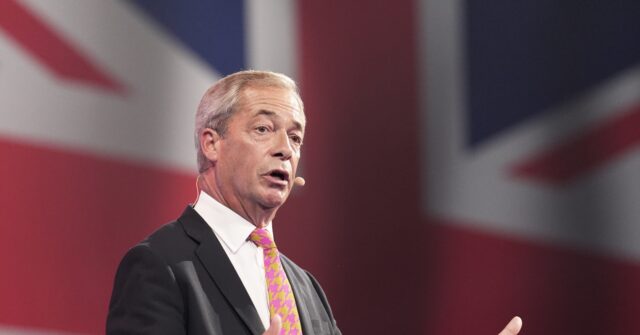On a recent Monday, Nigel Farage, the leader of Reform UK, delivered a petition to Downing Street, demanding that Prime Minister Sir Keir Starmer reverse plans to cut winter fuel aid payments allocated to pensioners. Farage expressed his resolve to combat what he termed a “vindictive attack” by Labour on the elderly population. The Conservative government left behind a considerable financial deficit amounting to £22 billion, which Starmer’s government now looks to address through what it describes as “tough” decisions, including the reduction of subsidies designed to help older citizens stay warm during the winter months. This controversial move is seen as a necessary measure to bridge the budget shortfall, yet the implications on vulnerable communities have raised significant concerns.
Under the new policy, winter fuel aid payments will not be available to approximately 10 million pensioners, a decision that has stirred discontent among advocacy groups and political opponents alike. Notably, the cuts will not affect those claiming pension credit or other benefits; however, research indicates that around 780,000 pensioners are unlikely to apply for alternative benefits, leaving them isolated from receiving necessary support. Among the elderly demographics impacted, as per the Department for Work and Pensions’ analysis, 90% of individuals aged between 66 and 79 will lose this financial assistance, underscoring the scale and potential fallout of the cuts on older individuals who may already face financial hardships.
Despite these cuts, Prime Minister Starmer has assured the public that pensioners will be “better off” under Labour’s governance, citing a planned rise in state pensions for the following year as a mitigating factor. However, pressure mounts as figures reveal that older pensioners, specifically the over-80s, who currently receive £300 in aid compared to £200 for their younger counterparts, stand to endure a harsher financial impact. This comes at a time when energy prices have risen dramatically across the UK, prompting demands for adequate financial relief for one of the most vulnerable demographics in the country.
Farage has vehemently argued against the cuts, linking the surging energy prices to failed policies surrounding natural gas and oil production in the UK, which he claims have been neglected by both the Conservative and Labour governments. His stance suggests that despite efforts to meet green energy objectives, the accelerated transition has resulted in soaring energy costs, hurting consumers, particularly the elderly, who depend heavily on winter fuel payments. This narrative attacks the government’s energy policy and highlights what Farage perceives as a disconnect between government aspirations and the hardships faced by ordinary citizens.
The implications of these cuts may extend beyond financial woes; health advocates warn that they could significantly exacerbate the already critical issue of winter mortality rates among the elderly. Rhian Bowen-Davies, the older people’s commissioner in Wales, cautioned that the policy could lead to up to 4,000 additional deaths this winter, highlighting a grave consequence of austerity measures targeting vulnerable populations. Surveys reveal deep public disapproval of the cuts, with a recent poll indicating that 59% of Britons oppose the winter fuel aid reductions. Strikingly, even among Labour supporters, nearly half believe the government’s decision to cut the aid is misguided, showcasing a growing rift within the party’s base over the welfare of the elderly.
The Lib Dems and other political opposition voices have joined Farage in denouncing the proposed cuts, with Liberal Democrat Treasury spokesperson Daisy Cooper labeling the move as “unbelievable.” She asserts that cutting winter fuel payments constitutes a monumental error for the Labour government, emphasizing the vulnerability of many pensioners who face grim choices between heating their homes and buying food during the bitter winter months. With growing political and public backlash against the winter fuel aid cuts, the future of this policy remains uncertain, as calls for re-evaluation intensify amidst mounting pressure on the government to prioritize the well-being of its elderly citizens.

